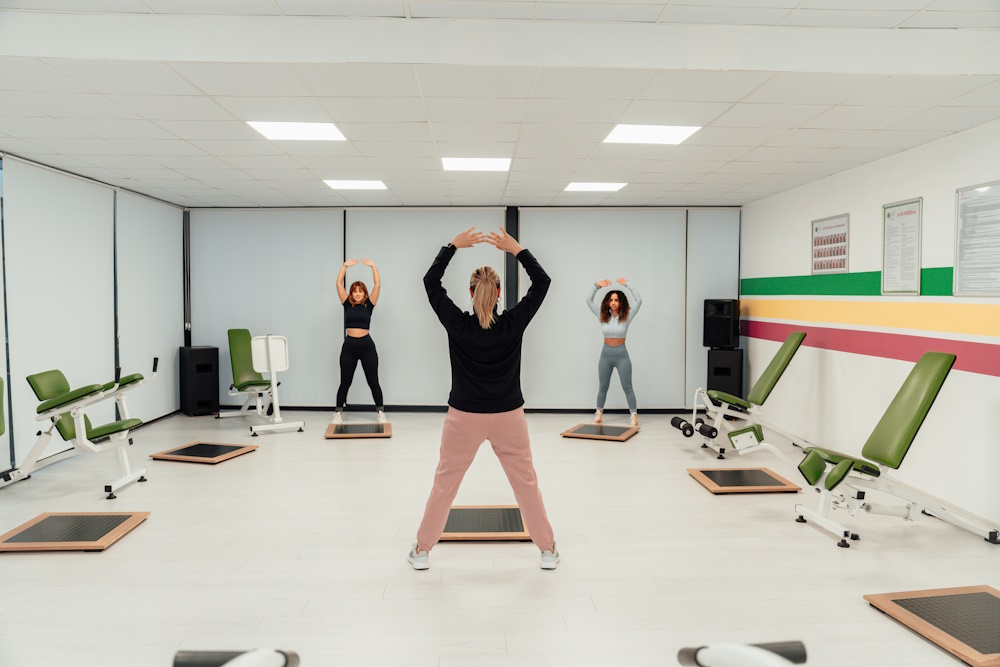Pilates isn’t just a form of exercise; it’s a lifestyle and a community that promotes holistic well-being. In this guide, we’ll explore the world of Pilates social communities, where like-minded individuals come together to share their passion for Pilates. Whether you’re an enthusiast, a beginner, or just curious about Pilates, these communities offer a supportive and motivating environment. We’ll discuss the benefits of group Pilates, how to attract clients to Pilates as an instructor, the terminology for individuals who practice Pilates, and the reasons behind the current popularity of Pilates.
What are the Benefits of Group Pilates?
Group Pilates offers numerous benefits, fostering a sense of community and shared purpose:
1. Motivation: Exercising in a group setting can boost motivation, as participants inspire each other to push through challenges and stay consistent.
2. Social Interaction: Group Pilates provides an opportunity for social interaction, allowing participants to build friendships and a sense of belonging.
3. Accountability: When you commit to a group class, you’re more likely to attend regularly, helping you stay accountable to your fitness goals.
4. Variety: Group classes often incorporate a variety of exercises, making each session engaging and diverse.
5. Expert Guidance: Instructors in group Pilates classes provide expert guidance and ensure that participants perform exercises correctly.
6. Fun and Energy: The collective energy of a group can make workouts more enjoyable, adding a fun aspect to the sessions.
7. Cost-Efficiency: Group classes are often more cost-effective than one-on-one sessions with a Pilates instructor.
8. Community Support: Sharing your Pilates journey with others can offer valuable support and encouragement.
How Do You Attract Clients to Pilates?
If you’re a Pilates instructor or studio owner looking to attract clients, consider the following strategies:
1. Online Presence: Maintain an online presence through a website and social media platforms. Share informative content, testimonials, and class schedules.
2. Offer Free Workshops: Hosting free introductory workshops can attract potential clients and give them a taste of what Pilates offers.
3. Referral Programs: Implement a referral program where current clients can earn incentives for referring friends and family.
4. Engage with the Community: Attend local fitness and wellness events, engage with the community, and network with potential clients.
5. Partner with Local Businesses: Partner with local health-focused businesses like health food stores or yoga studios to cross-promote each other’s services.
6. Offer Variety: Diversify your offerings by providing different Pilates class types, such as mat, reformer, or barre, to appeal to a broader audience.
7. Provide Excellent Customer Service: Outstanding customer service and personalized attention can set you apart in a competitive market.
8. Online Booking System: Implement an easy-to-use online booking system to streamline the scheduling process for clients.
What Do You Call Someone Who Does Pilates?
People who practice Pilates are commonly referred to as “Pilates enthusiasts” or simply “Pilates practitioners.” The terminology is inclusive and doesn’t specify skill level, making it suitable for both beginners and experienced individuals.
Why is Pilates Popular Now?
Pilates has gained popularity for several reasons:
1. Holistic Approach: Pilates offers a holistic approach to fitness, focusing on core strength, flexibility, and body awareness, which aligns with the growing interest in overall well-being.
2. Low-Impact: Pilates is a low-impact form of exercise, making it accessible to a wide range of individuals, including those with joint issues or injuries.
3. Online Accessibility: The availability of online Pilates classes and resources has made it easier for people to practice Pilates from the comfort of their homes.
4. Celebrity Endorsement: Many celebrities have endorsed Pilates, bringing it into the spotlight and influencing its popularity.
5. Stress Relief: Pilates incorporates mindfulness and relaxation, which is particularly appealing in our fast-paced, stressful lives.
6. Community and Support: Pilates communities and social support networks provide a sense of belonging and motivation, further driving its popularity.
7. Health Benefits: As people become more health-conscious, they are drawn to Pilates for its numerous physical and mental health benefits.
In summary, Pilates social communities offer a supportive and motivating environment for individuals looking to improve their fitness and overall well-being. Group Pilates provides numerous benefits, including motivation, social interaction, and expert guidance. Pilates instructors can attract clients through a variety of strategies, such as online presence and referral programs. Those who practice Pilates are commonly referred to as “Pilates enthusiasts.” The current popularity of Pilates can be attributed to its holistic approach, low-impact nature, online accessibility, celebrity endorsement, stress relief, community support, and the multitude of health benefits it provides. Whether you’re new to Pilates or a seasoned practitioner, the Pilates community welcomes you with open arms, offering a sense of camaraderie and shared dedication to a healthier, more balanced life.
